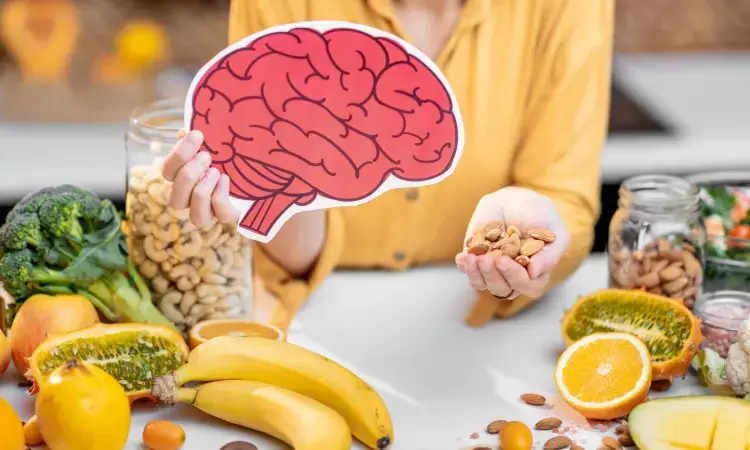- Home
- Medical news & Guidelines
- Anesthesiology
- Cardiology and CTVS
- Critical Care
- Dentistry
- Dermatology
- Diabetes and Endocrinology
- ENT
- Gastroenterology
- Medicine
- Nephrology
- Neurology
- Obstretics-Gynaecology
- Oncology
- Ophthalmology
- Orthopaedics
- Pediatrics-Neonatology
- Psychiatry
- Pulmonology
- Radiology
- Surgery
- Urology
- Laboratory Medicine
- Diet
- Nursing
- Paramedical
- Physiotherapy
- Health news
- Fact Check
- Bone Health Fact Check
- Brain Health Fact Check
- Cancer Related Fact Check
- Child Care Fact Check
- Dental and oral health fact check
- Diabetes and metabolic health fact check
- Diet and Nutrition Fact Check
- Eye and ENT Care Fact Check
- Fitness fact check
- Gut health fact check
- Heart health fact check
- Kidney health fact check
- Medical education fact check
- Men's health fact check
- Respiratory fact check
- Skin and hair care fact check
- Vaccine and Immunization fact check
- Women's health fact check
- AYUSH
- State News
- Andaman and Nicobar Islands
- Andhra Pradesh
- Arunachal Pradesh
- Assam
- Bihar
- Chandigarh
- Chattisgarh
- Dadra and Nagar Haveli
- Daman and Diu
- Delhi
- Goa
- Gujarat
- Haryana
- Himachal Pradesh
- Jammu & Kashmir
- Jharkhand
- Karnataka
- Kerala
- Ladakh
- Lakshadweep
- Madhya Pradesh
- Maharashtra
- Manipur
- Meghalaya
- Mizoram
- Nagaland
- Odisha
- Puducherry
- Punjab
- Rajasthan
- Sikkim
- Tamil Nadu
- Telangana
- Tripura
- Uttar Pradesh
- Uttrakhand
- West Bengal
- Medical Education
- Industry
High consumption of ultra-processed foods with artificial sweetners linked to depression: JAMA

Diet and depression are interrelated. Increased consumption of ultra-processed food (UPF) is associated with depression. According to a recent study published in JAMA Network Open, energy-dense, palatable, and ready-to-eat items, especially artificial sweeteners and artificially sweetened beverages, increase depression risk.
Previous studies have demonstrated a link between diet and depression. There needs to be more data available to determine this association and elaborate on which UPF foods and ingredients are associated with depression risk and how the timing of UPF consumption is related.
Considering the background above, researchers investigated this association in 31712 females, aged 42 to 62 years, middle-aged, non-Hispanic white females without any history of depression at baseline using validated food frequency questionnaires (FFQs) every four years and the NOVA classification. Strict definition (self-reported clinician–diagnosed depression and regular antidepressant use) and broad definition (requiring clinical diagnosis and antidepressant use) were used in this study.
The secondary analyses also classified UPF into its components, including ultra-processed grain foods and dairy products, sweet snacks, ready-to-eat meals, fats and sauces, savory snacks, processed meat, beverages, and artificial sweeteners. Cox proportional hazard models and 2-sided tests from SAS (version 9.4) were used.
The study summary includes the following:
- Those with high UPF intake were smokers, physically inactive, and had greater BMI and comorbidities like diabetes, hypertension, and dyslipidemia.
- Based on strict and broad definition, 2122 and 4840 incident cases of depression were identified.
- Those in the highest quintile had an increased risk of depression for both strict and broad definitions, with HR of 1.49 and 1.34, respectively.
- Researchers did not observe differential associations in age, BMI, physical activity, or smoking subgroups.
- Associations were not materially altered in a 4-year lag analysis, arguing against reverse causation with HR 1.32 for strict definition.
Greater UPF intake, particularly artificial sweeteners and artificially sweetened beverages, increases the risk of depression. The mechanism is unknown, but a possible explanation could be the trigger of purinergic transmission in the brain by artificial sweeteners.
Reducing UPF intake by at least three servings per day lowers depression risk, researchers noted.
The team acknowledged the Large sample, prospective design, high follow-up rate, multiple confounders adjustments, and extensively validated dietary assessment tools to be the strengths of the study.
Further reading:
Samuthpongtorn C, Nguyen LH, Okereke OI, et al. Consumption of Ultraprocessed Food and Risk of Depression. JAMA Netw Open. 2023;6(9):e2334770. doi:10.1001/jamanetworkopen.2023.34770
BDS, MDS in Periodontics and Implantology
Dr. Aditi Yadav is a BDS, MDS in Periodontics and Implantology. She has a clinical experience of 5 years as a laser dental surgeon. She also has a Diploma in clinical research and pharmacovigilance and is a Certified data scientist. She is currently working as a content developer in e-health services. Dr. Yadav has a keen interest in Medical Journalism and is actively involved in Medical Research writing.
Dr Kamal Kant Kohli-MBBS, DTCD- a chest specialist with more than 30 years of practice and a flair for writing clinical articles, Dr Kamal Kant Kohli joined Medical Dialogues as a Chief Editor of Medical News. Besides writing articles, as an editor, he proofreads and verifies all the medical content published on Medical Dialogues including those coming from journals, studies,medical conferences,guidelines etc. Email: drkohli@medicaldialogues.in. Contact no. 011-43720751


